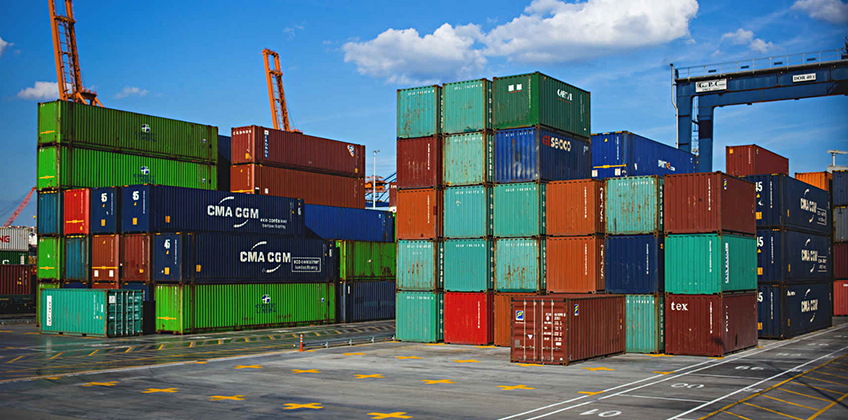There are good reasons to take your products overseas, and good reasons to hold off. How do you decide if now might be the time?
Janet makes gourmet smallgoods for cafes. Her business is new but it is doing well. She produces a variety of baked goods, vegan cakes, sandwiches, and pies from scratch using a number of local suppliers in Sydney, and has been successfully doing business in Australia by supplying her goods for sale at a number of cafes in Western Sydney and the Blue Mountains. She is considering an opportunity that has arisen to sell her products to a number of cafes in Korea.
The first issue for Janet to address is the strength of her business. Many small business look to expand into new markets, local or overseas, in order to bolster their revenue. However, it is unwise to take the risks of penetrating a foreign market, even given grants and incentives such as the EMDG, if your business is not successful locally. How secure is your business in terms of its market share, operations, resources, financial planning, budgeting and forecasting? Is your cash flow fluid or tight? If your business is not doing certain things well here, it is not wise to try compensate through an overseas venture.
Janet has a reliable accountant and has recently hired a CFO to improve her financial processes. As a result of this CFO outsourcing, she has confidence in her budgeting and forecasting, and better understands the value and position of her resources and operations. She has consistent supply, good staff, and steady and growing sales through the cafes which sell her goods. It seems like she has a strong enough business to consider doing business in Korea.
If you do feel your business is strong enough to try sell products overseas, before you even examine the market and financial opportunities, you should explore your motivations. There are a number of common reasons successful businesses venture overseas, but these motivations need to accurately resonate with you and your business strategy.
- You have reached critical mass in Australia. The market is here too small, but there’s more of a market overseas, so you decide to target the more lucrative market in order to drive growth in sales and forestall a decline.
- Your ideal market is overseas. Maybe you started doing business in Australia simply because you happen to be here, rather than because it is the most ideal market globally. Once your business has developed, it is time to move your product to its most sustainable market.
- You want to move overseas. You are driven by a desire to change to your personal lifestyle, and you see an opportunity to realistically set up an equally successful version of your business overseas.
- Your vision/mission/product is international, so need to go international. Some businesses, such as those involved in travel or transport, must consider overseas expansion because their very market and business structure is inherently international.
- you currently source your supply from overseas vendors, and you can secure these suppliers by buying them out, and hence move overseas for the purposes of vertical integration. You may also find that outsourcing work to overseas staff will eventually make it attractive to actually set up shop overseas. In this sense, you are going overseas not for sales but for procurement security. This might in turn give you a chance to penetrate the foreign market with sales, or enter another market nearby.
While the market in Sydney and the Blue Mountains for café cuisine is competitive, Janet doesn’t believe she has hit critical mass. She has no real interest in relocating to Korea, and while her products are internationally marketable, they are not inherently international. However, Korea does present an attractive market, if not an ideal one. The way she crafts and presents her baked goods, sandwiches, and pies appeal to cafes with primarily Korean clientele in Sydney. Moreover, her suppliers, while local, do in fact source many of their items from Korea. So there is considerable advantage for Janet to access these Korean suppliers directly and present her Korean-style café goods to the Korean café market, with the attractive twist of positioning herself with a ‘made-in-Australia’ brand.
These reasons are not enough for Janet to take the plunge into the Korean market. She needs to consider the financial implications of such a change and draw up a detailed financial and business plan to plot and measure sufficient cash flow. Grants such as the Export Market Development Grant (EMDG) can help her, but in practice it can be tricky to apply to successfully. She would need to contact an EMDG expert to help her understand which export and promotional activity could benefit from the EMDG rebate, both now and in the future, particularly if she shifts more of her supply and production to Korea.
Successful small businesses will do well to consider which of the above reasons are motivating their desire to sell overseas. A business advisor who has experience in both Australia and overseas markets can help you identify the right incentives and draw up the right financial plan.
Calibre Business Advisory invests more time than most firms into finding solutions for our clients. Contact our business advisors and tax accountants to discover new options for your business in Australia and beyond.
Important Disclaimer: Readers should not act solely on the basis of the material on this page. Items herein are general comments only and do not constitute or convey advice. Legislation and proposals of legislation are also subject to constant change. We therefore recommend that formal advice be sought before acting in any of the areas. This news article is issued as a guide to the readers. Calibre Business Advisory Pty Ltd and its associated entities disclaims any losses that may be incurred as a result of the reader undertaking any action based on this article.

